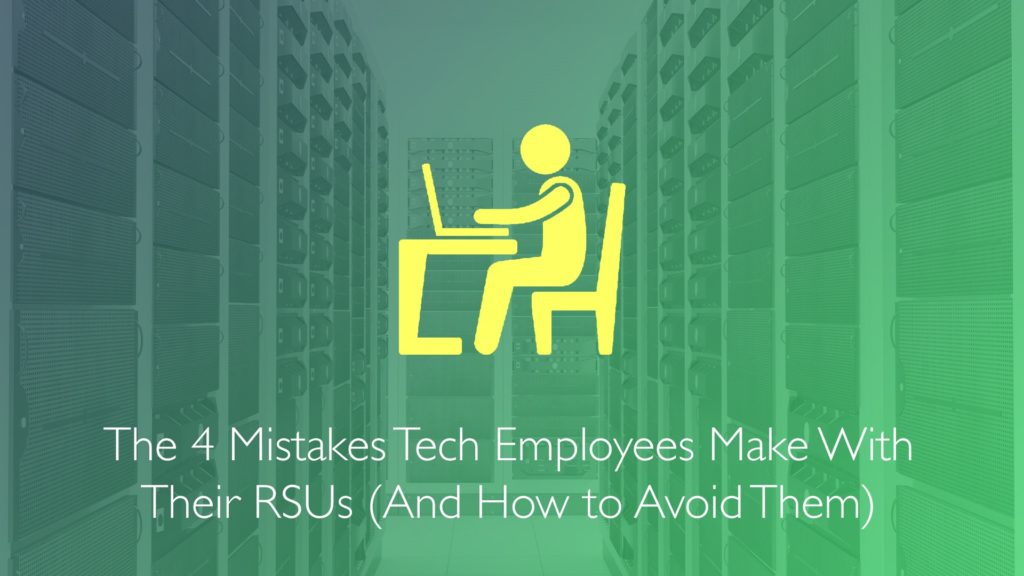
Equity compensation has increasingly been used as part of tech employee’s annual compensation. The most popular form we see are Restricted Stock Units (RSUs). They’re also one of the easiest methods to understand as they are essentially W2 income.
RSUs provide an excellent way to benefit from the growth of your company’s stock price, but also pose a risk if the stock price falls. Here are the top four mistakes:
Paying attention to the unvested amount
When logging into your RSU investment account likely one of the first numbers you see of the total POTENTIAL value. Particularly when you’ve been fortunate to receive multiple grants resulting in large amounts of shares this amount can be quite eye opening. However, this dollar amount is likely a far cry from what you’ll deposit in your bank account. There are a few factors at play here:
- You’ll only have access to the funds upon vesting, which means you won’t have the large chunk all at once.
- In waiting for the next vest period, the stock price could go up or down which can dramatically lower that unvested amount.
- The unvested amount is before tax and given most tech professionals are in at least the 22% tax bracket to go along with state and Medicare withholding, you’re likely looking at 30% or greater going to taxes
Not accounting for the under withholding of taxes.
Next time you have a vest date, look at the confirm and note how much Federal tax is being withheld. In the majority of cases your Federal tax withholding rate will be 22% as this is the required amount per the IRS. In cases of tech employees with household incomes of low 6 figures this doesn’t pose a problem. However, many have incomes much higher which causes your tax bracket to jump up as high as 37% (which means ~45% when including your state tax and Medicare tax isn’t coming home with you.)
Often this underpayment of taxes isn’t caught until annually filing your tax return in which not only are you looking at a big tax bill, but also one that includes underpayment penalty. Typically, this only happens once as you don’t want to make that mistake again! Therefore, I find paying estimated taxes as the vest dates occur to be the best solution.
Living a lifestyle that depends on the RSU income
This one can vary depending on the % of your overall income coming from the RSUs. If it’s a very small amount then likely not a big issue, but when substantial chunks of income are received upon vest it becomes easy to “count” on that as part of your normal salary. However, with individual stocks the stock price can fluctuate so much that counting on that money to cover your daily/monthly etc. lifestyle can be a dangerous game. When projecting out your financial plan, use a conservative stock price as to not overspend on mortgages, car payments, private school, etc. I like to use these RSU vests to then plan vacations, home improvements etc. that are one-time items that can be adjusted in the stock price takes a dive.
Not selling upon vest
Or at least not selling enough to go ahead and cover the tax liability as mentioned previously. Large portions of your portfolio held in individual stocks brings a concentration risk that can make you wealthy quickly, but also cause financial heartache just fast. So if not selling upon vest, at least make sure you have substantial resources elsewhere to cover your lifestyle and upcoming expenditures. Can you afford to take this risk?
Particularly when you have more unvested shares you can still benefit if the stock price does indeed go higher
Overall, the periodic and variable nature of RSUs means having a well thought out plan on how you’re going to navigate them upon vest is key. Go ahead and know ahead of time your plan of action upon each vest date.

